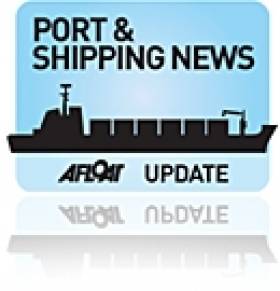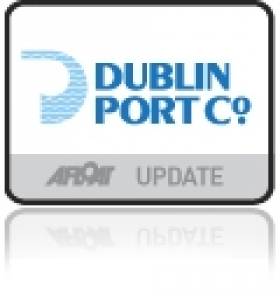Displaying items by tag: Sinbad Marine Services
Sinbad Marine's Coastal Cat Up for Sale
#CAT FOR SALE- Killybegs based Sinbad Marine Services have put up for sale the 12m SMS Coastal Cat, a 2010 built specialized survey and workboat completed at the local yard of Mooney Boats.
The 4-tonnes bollard pull vessel has a 25m sq. deck working area where there is a load capacity of 2 tonnes per sq. m. She is powered by Twin Perkins Sabre M215C engines delivering 430bhp coupled to Twin Disc 5061 gearboxes.
As previously reported on Afloat.ie, the Dublin Port Company's Voith Schneider tug Deilginis was acquired earlier this year by the Donegal integrated marine services company.
Among her new roles are 'Guard Vessel' duties and since her introduction after an upgrade, she has served in offshore waters at the Corrib Gas Field.
#DUBLIN PORT TUGS SOLD – Ben Eadar becomes the final member of an older generation of tugs to be sold having belonged to the Dublin Port & Docks Board (DP&DB) which was later to become the Dublin Port Company, writes Jehan Ashmore.
The 17-tonnes bollard pull (tbp) Ben Eadar (built 1973 / 198grt) was sold to ARPA & Co. of Setubal, Portugal, though ironically she may be towed to her new working grounds.
She was the oldest of the trio alongside her fleetmates Cluain Tarbh (1991/268grt) and Deilginis (1997/335grt).
They were eventually replaced when the first of a pair of newbuilds entered in 2009. The Deilginis therefore was the last tug commissioned by the DP&DB. In addition they were the last tugs named after Dublin Bay coastal suburbs spelt in Irish. Deilginis is a translation for Dalkey, Cluain Tarbh for Clontarf and Ben Eadar for Howth.
The 35tbp Cluain Tarbh was renamed Elliot in February after her transfer to new owners T.P. Towing in Gibraltar while the 37tbp Deilginis remains in Irish waters.
She made a delivery voyage several weeks ago to Killybegs to start a new career with Sinbad Marine Services. The newcomer replaces another Voith Schneider tug the Carron of 24tbp which was sold to the Forth Bridge Consortium.
With only 13,000 working hours clocked-up on Deilginis main Caterpillar engines, she is however to undergo an upgrade to install new piping and wheelhouse electronics amongst other alterations.
Currently the Deilginis is classified with Bureau Veritas and has a notation of coastal waters but Sinbad intend to upgrade this to Limited European Area (LEA) waters so to increase a greater operational role.
She joins the multi-purpose Sinbad fleet which provide coastal towage, berthing assistance, oil spill recovery, fire fighting and dredging assistance.






























































